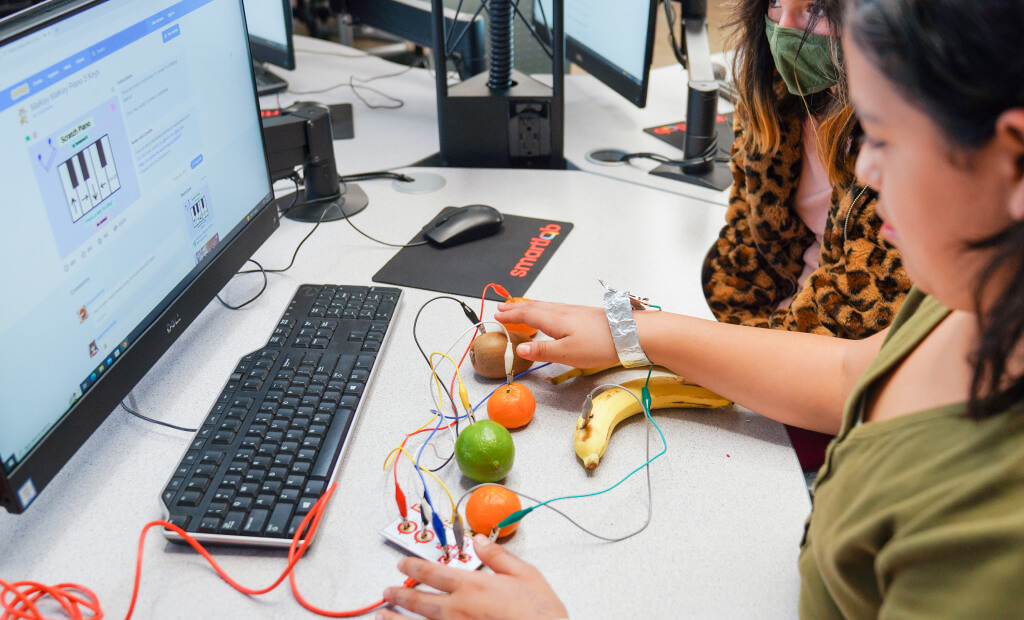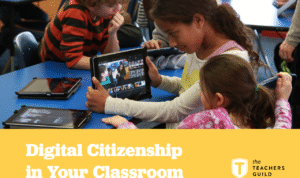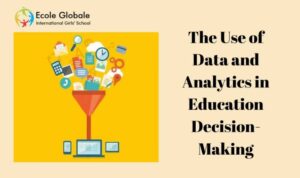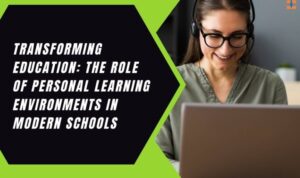How to Develop 21st Century Skills Through Education sets the stage for a fascinating exploration of the skills essential for success in today’s world. In a rapidly changing landscape, the importance of critical thinking, collaboration, and digital literacy cannot be overstated. These skills not only empower learners to navigate complex challenges but also prepare them for a future where adaptability and innovation are key.
By integrating these competencies into educational frameworks, educators can foster an environment that encourages creativity and effective communication. As we delve into various strategies and components that contribute to the development of these skills, it becomes clear that a holistic approach is necessary to cultivate well-rounded individuals ready to thrive in the 21st century.
Importance of 21st Century Skills in Education

In today’s rapidly changing world, the need for 21st-century skills in education has become increasingly apparent. These skills are essential not only for personal development but also for professional success in a globalized economy. As students prepare to face challenges that require adaptability, creativity, and teamwork, educational institutions must prioritize these competencies to equip learners for future demands.
Relevance of Critical Thinking in Today’s Learning Environment
Critical thinking serves as the backbone of effective learning in the 21st century. It goes beyond mere memorization of facts and figures; it encompasses the ability to analyze information, evaluate arguments, and synthesize diverse viewpoints. This skill empowers students to navigate complex problems and make informed decisions. In the age of information overload, individuals equipped with critical thinking skills can discern credible sources from unreliable ones and develop solutions to real-world challenges.
“Critical thinking enables individuals to think independently and approach problems logically.”
Learning environments that foster critical thinking often include inquiry-based projects and discussions that challenge students to question assumptions and explore alternative solutions. For instance, a classroom activity could involve analyzing case studies where students evaluate the decision-making processes of real companies during crises. Such experiential learning helps students apply critical thinking in practical contexts.
Role of Collaboration in Developing Interpersonal Skills
Collaboration is essential in nurturing interpersonal skills that are vital for teamwork and communication in the workforce. Modern workplaces frequently require individuals to work in teams, and educational settings that emphasize collaborative learning prepare students for this reality. Collaborative projects encourage students to share ideas, negotiate roles, and resolve conflicts, all of which are crucial in building strong interpersonal relationships.When students engage in group work, they learn to appreciate diverse perspectives and enhance their communication skills.
For example, participating in a group debate on a current social issue fosters respectful dialogue and critical listening. The ability to work effectively with others not only enriches the learning experience but also promotes empathy and cultural awareness, essential traits in a diverse society.
Significance of Digital Literacy in Modern Education
Digital literacy has emerged as a fundamental skill in the 21st century, as technology permeates every aspect of life. Understanding how to effectively use digital tools is crucial for academic success, as it allows students to access vast amounts of information, conduct research, and communicate effectively. Furthermore, digital literacy encompasses the ability to critically assess online content and protect personal information, which is vital in an era of digital communication and social media.Educational institutions are increasingly integrating technology into the curriculum, equipping students with the necessary tools to thrive in a digital world.
For instance, teaching coding and data analysis not only enhances technical skills but also encourages logical thinking and problem-solving capabilities. Moreover, digital platforms facilitate collaboration among students, enabling them to connect and work with peers globally, thus broadening their perspectives and enhancing their learning experiences.
“Digital literacy empowers students to engage with information critically and responsibly.”
Key Components of 21st Century Skills: How To Develop 21st Century Skills Through Education
In the rapidly evolving landscape of the 21st century, education must adapt to equip learners with the skills necessary for success. Identifying and cultivating key components of 21st century skills is crucial for fostering critical thinking, collaboration, and adaptability among students. These skills not only prepare individuals for the workforce but also empower them to navigate an increasingly complex world.The essential skills needed for success in this new era include critical thinking, creativity, collaboration, communication, information literacy, and technological proficiency.
Each of these components plays a significant role in how students engage with information, solve problems, and work with others. Integrating these skills into educational frameworks enhances the learning experience and prepares students for future challenges.
Creativity and Innovation in Education
Creativity and innovation are vital components of 21st century skills, fostering an environment where students can think outside the box and develop unique solutions to problems. Encouraging creativity in the classroom not only enhances student engagement but also supports deeper understanding and retention of knowledge. For instance, project-based learning is a powerful method that allows students to explore real-world problems and create innovative solutions.
By working on projects, students can apply their knowledge in practical contexts, collaborating with peers and utilizing various resources. This approach not only nurtures creativity but also promotes critical thinking and teamwork.
Integrating Communication Skills into Lesson Plans
Effective communication skills are essential for students to express their ideas clearly and work collaboratively with others. Integrating these skills into lesson plans can be achieved through various methods that encourage interaction and dialogue among students. For example, incorporating group discussions, presentations, and peer reviews into the classroom can significantly enhance communication capabilities. Students can develop their verbal and non-verbal communication skills while also learning to listen actively and provide constructive feedback.
Additionally, utilizing technology for collaborative projects can further enrich communication skills. Tools such as video conferencing and online discussion forums provide students with platforms to share ideas, fostering a global perspective and understanding of diverse viewpoints. By implementing these strategies, educators can create a dynamic learning environment that not only prioritizes communication but also prepares students for effective engagement in the modern world.
Strategies for Educators to Foster 21st Century Skills
Fostering 21st century skills in education involves a multifaceted approach that combines innovative teaching methods, technology integration, and real-world applications. Educators play a crucial role in shaping the skills that students need to thrive in an increasingly complex and interconnected world. By implementing effective strategies, teachers can create an environment that nurtures critical thinking, collaboration, creativity, and communication.
Framework for Project-Based Learning
Project-based learning (PBL) is a dynamic classroom approach that engages students in meaningful projects. This method emphasizes real-world applications and encourages students to investigate and respond to complex questions or challenges. The following components are essential to building an effective PBL framework:
- Real-World Relevance: Projects should be grounded in authentic problems or scenarios that students care about. For instance, a project that involves designing a sustainable garden can engage students in environmental science while teaching them about biology and ecology.
- Collaboration: Promote teamwork by having students work in diverse groups. Collaborative projects allow students to learn from each other and develop interpersonal skills. For example, students might work together on a community service project that addresses a local need.
- Reflection: Incorporate opportunities for students to reflect on their learning experiences. Reflection helps students assess their progress and understand the skills they’ve developed throughout the project.
- Public Presentation: Encourage students to present their projects to an audience, such as fellow students, parents, or community members. This not only builds confidence but also enhances communication skills.
Incorporating Technology into the Classroom
Technology can significantly enhance learning experiences and foster 21st century skills. By integrating various technological tools and platforms, educators can create a more engaging and interactive environment. Consider these techniques for effective technology incorporation:
- Utilizing Digital Collaboration Tools: Platforms like Google Workspace or Microsoft Teams can facilitate group work and communication, allowing students to collaborate in real-time, regardless of their location.
- Incorporating Multimedia Resources: Resources such as videos, podcasts, and interactive simulations can enrich lessons and cater to different learning styles. For example, students can create video presentations to showcase their understanding of a topic.
- Gamification of Learning: Using game-based learning platforms can motivate students and make learning fun. Tools like Kahoot! or Quizizz can turn assessments into engaging, competitive experiences.
- Promoting Digital Literacy: Teaching students how to navigate digital information responsibly is crucial. Educators should emphasize evaluating sources for credibility and understanding the impact of digital footprints.
Organizing Workshops for Problem-Solving and Critical Thinking Exercises
Workshops provide an excellent opportunity for students to hone their problem-solving and critical thinking abilities in a structured setting. Educators can design workshops that are interactive and engaging. Here are some effective strategies:
- Scenario-Based Learning: Present students with real-life scenarios that require critical thinking. For example, they could work through a case study on environmental conservation and propose solutions to real-world challenges.
- Hands-On Activities: Incorporating hands-on tasks can stimulate creative thinking. Activities such as building prototypes or conducting experiments can help students learn through trial and error.
- Mind Mapping: Use mind mapping techniques to encourage students to brainstorm and visualize their ideas. This method fosters creativity and helps students organize their thoughts logically.
- Group Discussions: Facilitate discussions where students analyze different perspectives on a topic, encouraging them to think critically and articulate their reasoning.
Role of Curriculum in Developing 21st Century Skills
In today’s rapidly changing world, the role of curriculum in education has never been more critical. A well-designed curriculum is essential for fostering 21st century skills among students. This means creating learning experiences that not only impart knowledge but also develop competencies like critical thinking, collaboration, creativity, and communication. A curriculum infused with these skills prepares students to navigate and thrive in a complex, interconnected society.One effective way to design a curriculum that nurtures 21st century skills is through interdisciplinary approaches.
Interdisciplinary learning connects different subjects and allows students to solve real-world problems by applying knowledge from multiple disciplines. This approach not only makes learning more relevant but also encourages students to think critically and creatively. For instance, a project that integrates science, mathematics, and art could involve students designing a sustainable garden. They would calculate dimensions (math), research plant biology (science), and create a visual design (art), thus gaining a holistic understanding of the subject matter.
Assessment Methods for 21st Century Competencies, How to Develop 21st Century Skills Through Education
Assessments that accurately measure 21st century competencies are fundamental in evaluating student progress and skill acquisition. Traditional testing methods often fall short in assessing critical thinking and creativity. Therefore, educators must implement varied assessment strategies that reflect these skills. Some effective assessment methods include:
- Project-Based Assessments: These assessments require students to engage in projects that demonstrate their understanding and application of concepts. For example, a community service project allows students to apply problem-solving and teamwork skills in real-life scenarios.
- Portfolios: Portfolios enable students to collect their work over time, showcasing their growth and reflections on their learning journey. This method provides a comprehensive picture of a student’s capabilities.
- Peer and Self-Assessment: Encouraging students to evaluate their own work and that of their peers fosters a deeper understanding of the learning objectives and promotes critical reflection.
Alignment of Educational Standards with 21st Century Skill Requirements
Aligning educational standards with the demands of the 21st century is essential for ensuring that students acquire relevant skills. This involves revising existing standards to incorporate competencies that are essential for success in modern society. Key insights for aligning educational standards include:
- Integration of Soft Skills: Standards should reflect the importance of soft skills, such as communication and collaboration, alongside traditional academic skills.
- Focus on Global Citizenship: Curriculum standards must encourage students to understand their role in a global society, emphasizing cultural awareness and ethical responsibilities.
- Emphasis on Technology Literacy: With the increasing reliance on technology, standards should include elements that promote digital literacy and the responsible use of technology.
By ensuring that curriculum design, assessment methods, and educational standards are interconnected and focused on developing 21st century skills, educators can create a more effective learning environment that prepares students for future challenges.
Impact of Extracurricular Activities on Skill Development
Extracurricular activities play a vital role in the holistic development of students, encouraging them to step beyond the confines of traditional classroom learning. These activities not only enhance academic performance but also facilitate the cultivation of essential 21st-century skills. By engaging in various extracurricular avenues, students gain invaluable experiences that foster their emotional, social, and intellectual growth.
Team Sports and Communication
Participation in team sports significantly enhances communication skills and teamwork. When students engage in sports, they learn to articulate ideas, provide constructive feedback, and collaborate towards a common goal. The dynamics of working together as a team require effective communication strategies and understanding non-verbal cues. For instance, players must be able to convey their intentions during a game, which builds trust and strengthens relationships within the team.
The benefits of team sports extend beyond physical fitness; they instill a sense of camaraderie and mutual respect among participants. Students learn to navigate various personalities, resolving conflicts and fostering unity, which is crucial in both personal and professional environments. These experiences enhance their ability to work collaboratively, a skill that is increasingly sought after by employers.
Clubs and Societies Promote Leadership Skills
Joining clubs and societies provides students with a platform to develop leadership skills. In these settings, students often take on roles that require them to lead projects, organize events, and inspire their peers. Engaging in such activities cultivates essential qualities like decision-making, accountability, and effective communication.Through organizing events or leading initiatives, students gain first-hand experience in managing resources and motivating team members.
These opportunities teach them how to set objectives, delegate tasks, and evaluate outcomes. For example, a student leading a debate club not only hones their public speaking skills but also learns to guide discussions and foster an inclusive environment for diverse opinions.
Community Service and Social Responsibility
Community service plays a critical role in developing social responsibility and empathy among students. By participating in volunteer activities, students gain a deeper understanding of societal issues and the importance of giving back to their communities. These experiences foster a sense of empathy, encouraging students to look beyond their own needs and consider the perspectives of others.Engaging in community service helps students develop a sense of civic duty and responsibility.
For example, working in a local food bank allows students to witness firsthand the challenges faced by underprivileged individuals, promoting social awareness. Moreover, these activities often require teamwork and collaboration, further enhancing their interpersonal skills. Through the lens of service, students learn to appreciate the impact of their contributions, reinforcing the value of community and collective action. This not only enriches their personal growth but also inspires them to become proactive members of society.
Challenges in Implementing 21st Century Skills in Education
The journey toward integrating 21st century skills into education is fraught with challenges. While the need for skill-based learning is clear, schools often face significant barriers that hinder this transition. Understanding these obstacles is essential for educators and institutions aiming to cultivate an innovative and adaptive learning environment conducive to developing essential skills in students.The barriers to adopting a skill-based learning approach in schools can be categorized into several key areas.
These challenges stem from traditional educational methods, lack of resources, and resistance to change among educators and stakeholders. Addressing these barriers is crucial for fostering an educational atmosphere that embraces innovation and skill development.
Barriers to Integrating 21st Century Skills
Several factors contribute to the difficulty in implementing 21st century skills in education. Below are some critical barriers that schools encounter:
- Traditional Teaching Methods: Many educational institutions still rely heavily on rote memorization and standardized testing. This approach often limits opportunities for collaborative and critical thinking activities, which are essential for developing 21st century skills.
- Lack of Teacher Training: Educators may not have received adequate training in new pedagogical methods that emphasize skill-based learning. Without proper professional development, teachers may feel unprepared to incorporate these skills into their classrooms.
- Insufficient Resources: Schools often face budget constraints that limit access to the latest technology and learning tools. A lack of resources can impede the ability to create interactive and engaging learning experiences that foster skill development.
- Standardized Testing Pressure: The focus on standardized testing can discourage schools from adopting a skill-based curriculum, as the emphasis often lies on performance metrics rather than the holistic development of students.
- Resistance to Change: Some educators and administrators may resist shifting away from traditional methods due to comfort with existing practices or skepticism about the effectiveness of new approaches.
Strategies to Overcome Challenges
To successfully implement 21st century skills in education, schools can adopt several strategies that encourage an innovative mindset among educators and students alike. Here are some effective solutions:
- Professional Development Programs: Investing in ongoing teacher training focused on modern pedagogical approaches can equip educators with the skills needed to facilitate skill-based learning.
- Curriculum Flexibility: Schools should consider revising curricula to prioritize skills like critical thinking, communication, and collaboration over mere content delivery, allowing for more integrated learning experiences.
- Utilization of Technology: Providing access to innovative technology can enhance interactive learning opportunities. Tools like virtual simulations and collaborative platforms can support the development of essential skills in a digital age.
- Community and Parental Engagement: Involving parents and community members in the educational process can cultivate a supportive environment for change, emphasizing the importance of skill development in preparing students for future challenges.
- Advocacy for Policy Changes: Educators and administrators can advocate for educational policies that prioritize skill-based learning, creating a broader infrastructure that supports innovation in teaching and learning.
“Embracing 21st century skills in education requires not just a shift in curriculum, but a profound transformation in the mindset of educators and stakeholders.”
Future Trends in Education and 21st Century Skills
As we move further into the 21st century, the landscape of education continues to evolve, driven largely by technological advancements and shifting job market demands. Understanding these future trends is crucial for educators, students, and policymakers alike. The skills that students need to thrive in an increasingly complex world are changing, and education must adapt accordingly to equip learners with the tools they need for success.The rapid pace of technological development is reshaping how skills are taught and learned.
Innovations such as artificial intelligence, virtual reality, and online learning platforms are not just tools; they are changing the very nature of educational engagement. For instance, AI-powered personalized learning experiences can cater to individual student needs, enabling a more tailored approach to skill development. Moreover, emerging technologies are shifting the focus from rote memorization to critical thinking, problem-solving, and creativity, which are essential 21st-century skills.
Predictions on Technological Advancements
The integration of new technologies in educational settings is expected to transform skill development significantly. Here are several noteworthy predictions:
- Increased Use of AI: Artificial intelligence will play a pivotal role in creating adaptive learning environments where students receive customized resources and feedback based on their performance.
- Virtual and Augmented Reality: These technologies will facilitate immersive learning experiences, allowing students to explore complex subjects in an interactive manner, thereby enhancing their critical thinking and problem-solving skills.
- Gamification: The incorporation of game design elements into educational contexts will make learning more engaging and motivate students to develop resilience and teamwork skills.
- Remote Learning Technologies: The rise of remote and hybrid learning models will necessitate the development of communication and collaboration skills among students who work in virtual teams.
Emerging Pedagogical Methods
Pedagogical strategies that support 21st-century learning are also evolving. Various teaching methods are being implemented to better prepare students for future challenges:
- Project-Based Learning: This approach encourages students to engage in real-world projects, fostering collaboration, critical thinking, and creativity.
- Flipped Classrooms: Students learn new content at home through videos and online resources, using classroom time for discussions and hands-on activities that develop analytical skills.
- Inquiry-Based Learning: This method empowers students to ask questions and explore subjects deeply, promoting a greater understanding of concepts and enhancing their research skills.
Importance of Lifelong Learning
As job markets evolve, so does the need for continuous skill development. Lifelong learning has become essential for professionals aiming to remain competitive. Here’s why it matters:
- Adaptability: Rapid changes in technology and industry often require workers to update their skills regularly to adapt to new roles and responsibilities.
- Career Advancement: Engaging in lifelong learning opens up new opportunities for advancement and can lead to higher job satisfaction.
- Personal Fulfillment: Continuous learning fosters personal growth and satisfaction, encouraging individuals to pursue interests and passions beyond their formal education.
“In the future, the ability to learn, unlearn, and relearn will be one of the most crucial skills in adaptable career development.”
Understanding these future trends is vital for shaping educational frameworks that prioritize 21st-century skills. By embracing technology, innovative teaching methods, and a commitment to lifelong learning, education can effectively prepare individuals for the uncertainties of tomorrow’s job market.






